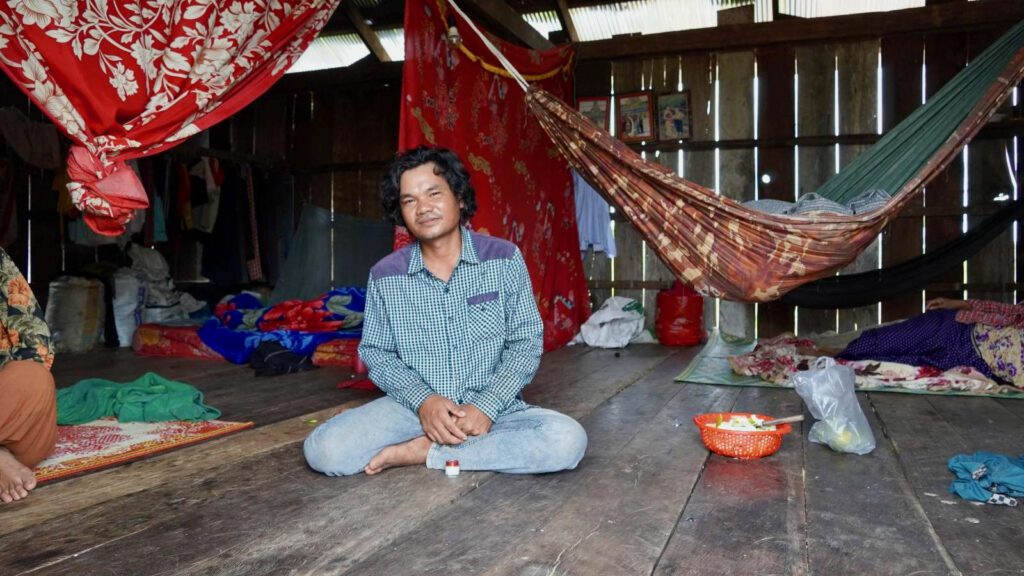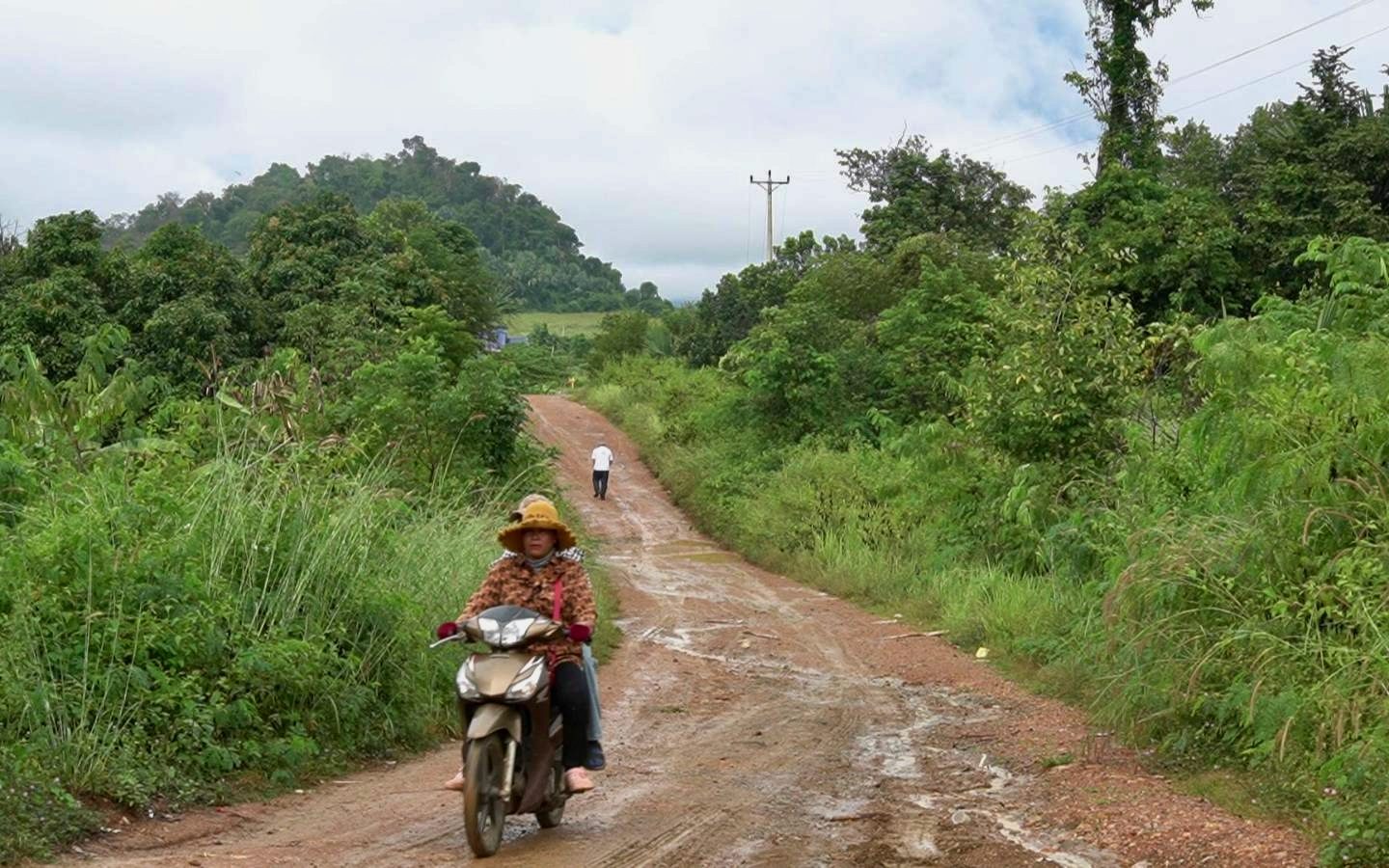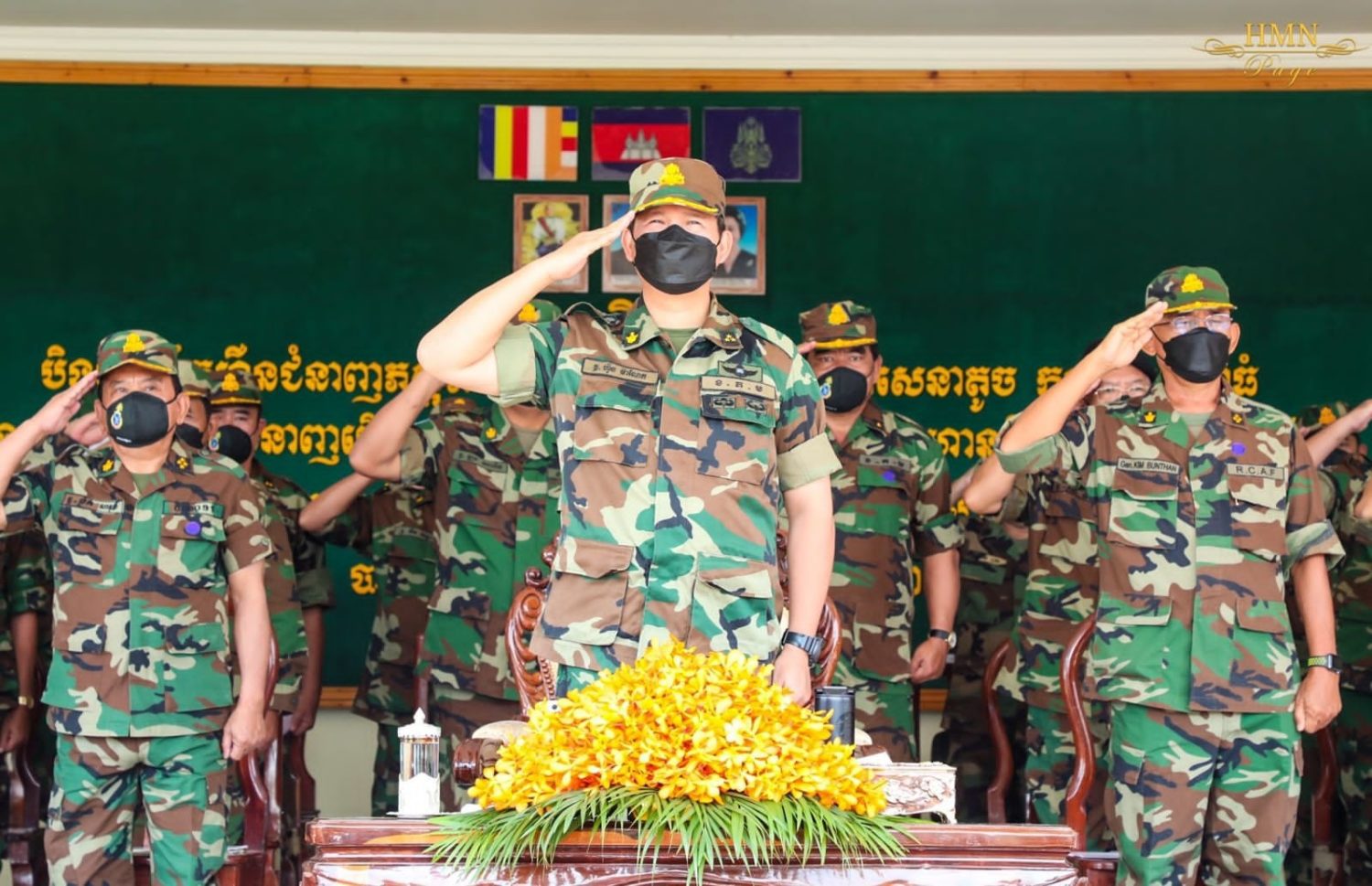VEAL VENG DISTRICT, Pursat — Voeun Boran says he’s a failed monkey hunter. He spent a month in the nearby forest earlier this year after hearing of the riches to be made.
He saw a few long-tailed monkeys there up in the trees, and set traps with corn as bait. But he failed to catch a single animal, he says.
“Someone had already come before me,” Boran says. “The monkeys have learned a lot, because they’ve been hunted by other people many times. Now they’re smarter.”
The area is a wide valley of helter-skelter fruit farms sitting between forested hills shrouded in mist. Heading toward the hills, residents say there will be monkey meat at restaurants, and point reporters toward what they say are hotspots for hunting. They all ask if reporters are interested in buying any monkeys.
Rain falls on a rutted dirt road climbing into the hills, and the residents become more hesitant to talk. Only outsiders come to do the hunting, one says. Another says she knows it happens, but doesn’t know who is involved.
Eventually, one man begins to talk at his wooden house, though he won’t give his name. Hunting wildlife has been a part of life for people in the area for a long time, the man says.
“Some people continue to hunt them, but I quit a long time ago,” he says.
“Before, there were so many monkeys, but now there are very few. They are almost gone because many people trapped and caught them,” the man says. “Before, we couldn’t harvest corn because they ate them. When we walked in the morning, we saw hundreds of monkeys come down to eat the corn. … This was in 2016.”
Part of the hunting was for monkey meat — one species without tails is particularly popular to eat — but it has since turned into a profit-making venture as prices keep rising, he says.
“I want to follow them because they earn very good money,” he says. “But they go hunt for months in the forest, so I can’t go because my family will starve.”
Smaller monkeys of less than 3 kg are the most lucrative. They go for $200 per animal now, more than doubling in the past few years, he says. They are checked carefully for missing fingers or injuries, he says, though he does not offer any knowledge of where they go.
One worker at the Vanny Bio Research monkey farm in Pursat city has said they believe wild monkeys were being hunted and brought in from the Veal Veng area, as the U.S. court issued an indictment against company management and Agriculture Ministry officials for allegedly smuggling wild monkeys to laboratories alongside captive-bred macaques.
Kong Putheara, director of Pursat’s provincial environment department, asks a reporter where the monkey hunting is happening as he has not seen it.
“We have searched for them but we have never found them,” Putheara says, though he knows of hunting muntjac deer and wild pigs.
Since the Agriculture Ministry official’s arrest in the U.S. last week, he has been tasked with keeping an eye on Vanny Bio Research, and will investigate whether and how wild monkeys have been brought there, he says.
“Now we are asking the brothers and sisters in the community, but we have not heard this information,” he says, adding that based on his experience, monkey hunting likely uses nets laid down in the forest, if it were happening.

Further along the road in Veal Veng, reporters reach Boran’s house, a small wooden room elevated on stilts. Three generations — at least six family members — sleep together there.
“I heard that many people were catching many monkeys,” Boran says. “I heard that they were earning a lot.”
So he invested in buying traps and bait, and walked through the hills for a month. Others have used airguns to hunt the monkeys, he says. But he had no luck. “I lost a lot of money.”
He is not clear about who the buyers are — saying he did not reach that stage — but says they come from Phnom Penh and Pursat city.
“In this village, many people used to hunt the monkeys, but now you need to go farther,” Boran says. “Before, there were many monkeys with the long white tail. Now we don’t know where they’re going.”












